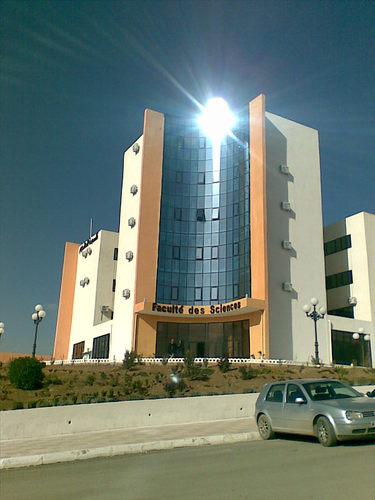|
| Titre : |
Energy Routing Problem |
| Type de document : |
document ÃĐlectronique |
| Auteurs : |
Hebal,Sara, Auteur ; Saad Harous, Directeur de thÃĻse ; Djamila Mechta |
| Editeur : |
SÃĐtif:UFA1 |
| AnnÃĐe de publication : |
2024 |
| Importance : |
1 vol (179 f.) |
| Format : |
29 cm |
| Langues : |
Français (fre) Langues originales : Français (fre) |
| CatÃĐgories : |
ThÃĻses & MÃĐmoires:Informatique
|
| Mots-clÃĐs : |
Energy Internet, peer-to-peer energy trading, energy routers, energy
routing problem, subscriber matching, energy-efficient path, transmission scheduling,
congestion management, optimization problem |
| Index. dÃĐcimale : |
004 - Informatique |
| RÃĐsumÃĐ : |
The Energy Internet (EI) is a new concept mainly related to peer-to-peer energy trading
(P2PET) in a smart grid power network. It allows energy trading pairs to route
energy between each other directly. Energy routing algorithms and routing devices
are the core components of the energy internet. The effective transmission of power
between trading pairs in P2PET over the complicated EI is significantly dependent on
the deployment of an efficient energy routing algorithm. There are three main problems
surrounding energy routing algorithms: subscriber matching, finding efficient
energy path and transmission scheduling. The fundamental objective of this thesis is
to focus on designing and building a realistic and efficient energy-routing approach
that handles subscriber matching, energy-efficient paths, and transmission scheduling.
Initially, we start by performing a comprehensive literature review. Firstly, we combine
matching prosumers and non-congestion energy efficient path selection by the
same objective function and propose an energy routing algorithm that optimizes both
energy prices and transmission losses. Then, we focus on minimizing energy transmission
losses and propose the shift from single-path to multi-path-based energy routing.
The energy routing problem is formulated as a non-convex non-linear optimization
problem and a semi-decentralized multi-path energy routing approach is proposed.
For more realistic energy routing, we integrate the P2P power market constraints into
the multi-path-based energy routing and create a non-convex mixed integer non-linear
optimization problem. To solve the problem we proposed a new semi-decentralized
energy routing approach that solves effectively subscriber matching, energy-efficient
path and transmission scheduling problems. |
| Note de contenu : |
|
| Côte titre : |
Di/0081 |
| En ligne : |
http://dspace.univ-setif.dz:8888/jspui/handle/123456789/4438 |
| Format de la ressource ÃĐlectronique : |
pdf |
Energy Routing Problem [document ÃĐlectronique] / Hebal,Sara, Auteur ; Saad Harous, Directeur de thÃĻse ; Djamila Mechta . - [S.l.] : SÃĐtif:UFA1, 2024 . - 1 vol (179 f.) ; 29 cm. Langues : Français ( fre) Langues originales : Français ( fre)
| CatÃĐgories : |
ThÃĻses & MÃĐmoires:Informatique
|
| Mots-clÃĐs : |
Energy Internet, peer-to-peer energy trading, energy routers, energy
routing problem, subscriber matching, energy-efficient path, transmission scheduling,
congestion management, optimization problem |
| Index. dÃĐcimale : |
004 - Informatique |
| RÃĐsumÃĐ : |
The Energy Internet (EI) is a new concept mainly related to peer-to-peer energy trading
(P2PET) in a smart grid power network. It allows energy trading pairs to route
energy between each other directly. Energy routing algorithms and routing devices
are the core components of the energy internet. The effective transmission of power
between trading pairs in P2PET over the complicated EI is significantly dependent on
the deployment of an efficient energy routing algorithm. There are three main problems
surrounding energy routing algorithms: subscriber matching, finding efficient
energy path and transmission scheduling. The fundamental objective of this thesis is
to focus on designing and building a realistic and efficient energy-routing approach
that handles subscriber matching, energy-efficient paths, and transmission scheduling.
Initially, we start by performing a comprehensive literature review. Firstly, we combine
matching prosumers and non-congestion energy efficient path selection by the
same objective function and propose an energy routing algorithm that optimizes both
energy prices and transmission losses. Then, we focus on minimizing energy transmission
losses and propose the shift from single-path to multi-path-based energy routing.
The energy routing problem is formulated as a non-convex non-linear optimization
problem and a semi-decentralized multi-path energy routing approach is proposed.
For more realistic energy routing, we integrate the P2P power market constraints into
the multi-path-based energy routing and create a non-convex mixed integer non-linear
optimization problem. To solve the problem we proposed a new semi-decentralized
energy routing approach that solves effectively subscriber matching, energy-efficient
path and transmission scheduling problems. |
| Note de contenu : |
|
| Côte titre : |
Di/0081 |
| En ligne : |
http://dspace.univ-setif.dz:8888/jspui/handle/123456789/4438 |
| Format de la ressource ÃĐlectronique : |
pdf |
|


